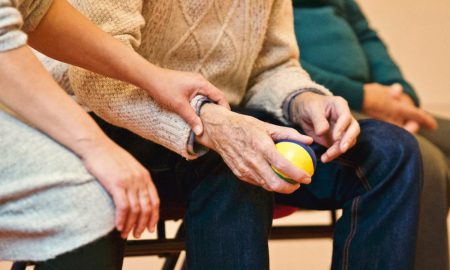
Surprising Benefits of Napping that You Didn’t Know About

Naps are usually frowned upon by the fast-paced American society which considers afternoon siestas for lazy people. But on the contrary to popular belief, naps do not make you lazy or unproductive. In fact, when done properly, these half-hour sleeping sessions can be extremely beneficial.
No wonder some of the best companies in the world have dedicated nap rooms to make their employees more productive during the day. Here are some surprising benefits of napping that you probably don’t know about:

Many studies have found that power naps can boost productivity and increase longevity
Boost in Productivity
Scientists have discovered that short naps of 30 minutes can boost your productivity and increase alertness while performing concentration-intensive tasks. The benefits of power naps have even compelled NASA to allow their astronauts 25-minute sleep sessions every day. A study shows that doctors and nurses who napped every day performed better in emergency situations and were more alert while conducting sensitive medical procedures.
Researchers observed 50 doctors and nurses from different departments during their night shifts for three consecutive days. The participants were instructed to nap every night at 3 a.m. for 40 minutes before undergoing tests to measure their motor skills at 7:30 a.m. In the end, frequent nappers made fewer mistakes during their shifts, felt less tired, and were able to perform tasks with more speed than their peers who did not nap.
Boosts Memory
Studies have also shown the benefits of power naps in enhancing memory and learning skills. According to researchers, everyone can benefit from a nap, no matter their age or profession, and even a sleep session as short as 5-10 minutes can significantly improve learning capacity, alertness, and productivity.
However, there can be downsides to napping if you stay asleep for longer than half an hour. Evidence suggests that long naps don’t just have an adverse effect on health and creativity, but they can also disrupt your sleep pattern and make you more fatigued during the day.
Improves Cardiovascular Health
The benefits of napping go beyond mental health. Studies point out that power naps regulate blood pressure which reduces stress on your heart and decreases the risk of cardiovascular diseases.
Dr. Manolis Kallistrato is a cardiologist who has been studying the effects of napping on heart health for most of his career. According to his observation, patients who slept for half an hour or less during the afternoon experienced a decrease in their blood pressure which reduced the damage in their arteries.
Reduce Cell Damage

Power naps have been proven to prevent cell damage and help your body recover from fatigue and sleep deprivation
We often don’t pay attention to the damage caused to our bodies due to sleep deprivation or fatigue. Lack of sleep doesn’t only make us less productive, but it also affects our body at the cellular level, causing damage to the cells and affecting the functioning of various organs such as the lungs, liver, and intestines, which increases the risk of various serious diseases.
Alleviates Stress
Among the various benefits of napping on the mind and body, are reduction of stress markers and increase in the immune system which can prevent any hormonal imbalance that occurs due to lack of sleep or stress. In as little as 30 minutes of rest, our body is able to restore hormonal levels and boost immunity which helps in fighting diseases.
Studies also show that people who nap regularly have lower levels of norepinephrine, a hormone that is produced during a stressful situation, in comparison to their non-napping counterparts.
How to Nap Properly
An ideal power nap should last between 20 and 30 minutes but it is important to give yourself at least 40 minutes of total sleep time since it can take a few minutes to doze off. According to scientists, the best time to nap is between 1 p.m. and 3 p.m. after lunch when your energy levels begin to decrease.
It is important to not oversleep since it can create sleep inertia and make it harder to wake up and feel alert again. Find a dark, quiet place to shut your eyes and set an alarm for 40 minutes to help you wake up on time.
More in Mental Health
-
`
Is Swimming in Cold Water Good for You?
Swimming is a beloved activity that provides numerous physical and mental health benefits. Swimming can be a fantastic workout, whether you’re...
November 15, 2023 -
`
Unlocking the True Benefits of Detox Water
Detox water has taken the health and wellness world by storm, promising a wide range of benefits that go beyond ordinary...
November 7, 2023 -
`
How Tom Brady Shed 10 lbs After Retirement
One of the NFL’s most celebrated athletes, Tom Brady, has always been a topic of discussion. Brady never fails to surprise,...
November 1, 2023 -
`
AI’s Hidden Toll on Our Brains
Artificial Intelligence (AI) has permeated almost every facet of our lives, from virtual assistants and recommendation algorithms to autonomous vehicles and...
October 24, 2023 -
`
What to Drink During a Workout
When it comes to getting the most out of your workout, proper hydration is key. What you drink during exercise can...
October 17, 2023 -
`
Wearable Technology Applications in Healthcare
The world of healthcare is evolving at an unprecedented pace, and wearable technology is one of the driving forces behind this...
October 10, 2023 -
`
Initiating and Integrating Exercise in Daily Life
Incorporating exercise into our daily lives is essential for maintaining optimal health and well-being. However, initiating a fitness routine and seamlessly...
October 10, 2023 -
`
Jason Momoa’s Workout Routine for Iconic Aquaman Look
We all remember the moment: The big screen lights up, waves crash, and out emerges Jason Momoa as Aquaman, with his...
October 8, 2023 -
`
Crying: The Benefits on Mental Health
In a world that often champions stoicism and emotional restraint, shedding tears is sometimes dismissed as a sign of vulnerability. However,...
September 26, 2023















You must be logged in to post a comment Login